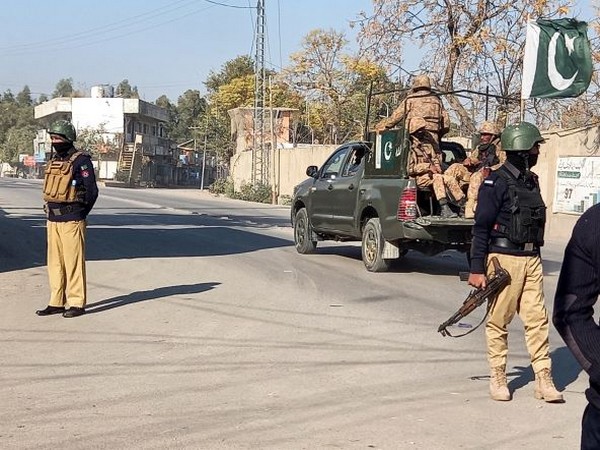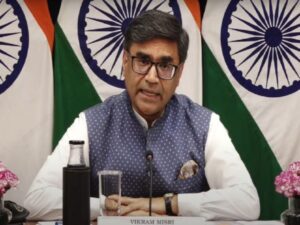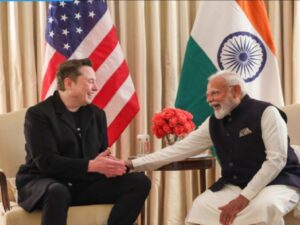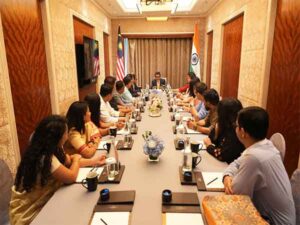Pak’s quest for “strategic depth” in Afghanistan turns to “strategic death”
Islamabad [Pakistan], January 5 (ANI): Amid the spurt in attacks by banned outfit Tehreek-e-Taliban Pakistan (TTP), Pakistan’s quest to secure “strategic depth” in Afghanistan by installing a ‘friendly’ government in Kabul has resulted in what security analysts have begun to call “strategic death,” writes James Crickton in policy research group, Poreg.

The TTP has deep historical ties with the Afghan Taliban, Al-Qaeda and the Islamic State in Khorasan Province (ISKP). Moreover, Pakistan, which nurtured TTP to use it as a proxy force to advance the strategic interest of the Pakistan Army in Afghanistan and India, is now getting a taste of its own medicine as the banned group is contributing to the rising insurgency in the country. “It is highly questionable as to how India would be able to support TTP while the Afghan Taliban – deemed as Pakistan’s “strategic assets” for decades – are in power in Kabul,” said Shemrez Nauman Afzal, a columnist from The Friday Times.
“The country’s security is challenged by a resurgent TTP, while ‘traditionalists’ blame India and not the Afghan Taliban”, he wrote in his latest column titled, “How Taliban Unravelled Pakistan’s ‘Strategic Depth’ in 2022”.
Farooq blames Imran Khan and now the Sharif government for talking directly to the TTP, giving up Kabul’s channel easily, reported Poreg.
Writing in The Friday Times, Islamabad-based journalist and analyst, Umer Farooq warns that the TTP is too close to the Kabul regime and the latter fears that if forced to evacuate or surrender to the Pakistani authorities, the TTP fighters may join the ISKP and other foreign groups, accelerating a process that has already been on since 2016.
In what has been dubbed as ‘soft’ treatment of the TTP for the sake of old times, talks were held at the military level by now-retired Lt Gen Faiz Hameed in his capacity as the chief of Inter-Services Intelligence, ISI (It is the eyes and ears of Pakistan deep state, and handles terrorists of all hues), and then, a delegation of the clergy.
This only allowed time for the TTP to consolidate, call off the cease-fire and boldly stage violent attacks across Pakistan, said Crickton.
Dealing with the TTP might eventually seem like the tip of an iceberg but there is no guarantee that the nature of military action itself will not change much.
More so because of TTP’s latest policy shift threatens to target two mainstream parties – Pakistan People’s Party (PPP) and Pakistan Muslim League – Nawaz (PML-N). Both parties are the mainstay of the ruling multiparty coalition of Prime Minister Shehbaz Sharif.
“If these two parties remain firm on their position and continue to be slaves of the army, then action will be taken against their leading people,” said a statement issued by the terror outfit on Wednesday, January 4, 2023.
The emerging scenario depicts an extremely precarious security situation for Pakistan with the Islamists determined to convert the land of the pure also into a Sharia-compliant country, said Crickton.
This is a direct fall-out of military-dictated foreign policy pursuits for a strategic depth in Afghanistan. There are clear signals from Islamabad that it has no option but to launch an all-out military operation against the resurgent Tehreek-e-Taliban Pakistan (TTP) holed up in the Af-Pak region.
Terror attacks are taking place almost daily in various Pakistani cities in which 261 security personnel have died since last November after the peace talks were revoked between the TTP and Pakistan Government.
The situation in the Af-Pak region is complicated by the presence of ISKP. This franchise of the mother IS, surged since the latter shifted base from Syria to Afghanistan, reported Poreg.
However, there is little doubt that the rulers in Kabul, running a ruthless regime, are both unwilling and unable to evict the TTP fighters, their ideological brothers and comrades-in-arm.
They are bound to react if the Pakistan Army stages operations like the “Zarb-e-Azb” and “Radd-ul-Fasad” against the TTP, reported Poreg.
Kabul has been defiant and has warned Islamabad against any military operation to secure the TTP fighters. Taliban leader and deputy Prime Minister Ahmad Yasir has even mocked Pakistan, reminding it with a recall of the Pakistan Army’s surrender to India in 1971.
Despite their heavy dependence upon Pakistan for supplies and access to the outside world, the Afghan Taliban can make things difficult for Pakistan, said Crickton.
Security experts foresee a prolonged military operation and the resultant diplomatic spat. Even the earlier votaries of the “strategic depth” concede that now in power, the Afghan Taliban will remain un-obliging on the TTP – like they had refused to hand over Osama to the US.






